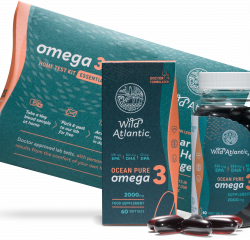What Happens If You Don’t Get Enough Vitamin A
Vitamin A is a crucial nutrient essential for maintaining numerous bodily functions, including vision, immune response, and skin health. Despite its importance, many individuals worldwide suffer from vitamin A deficiency. This article delves into the consequences of inadequate vitamin A intake and highlights the vital role this nutrient plays in overall health.
The Role of Vitamin A
Vitamin A is a fat-soluble vitamin found in two primary forms in the diet: retinoids and carotenoids. Retinoids, including retinol, retinal, and retinoic acid, are present in animal products, while carotenoids, such as beta-carotene, are abundant in plant-based foods. These compounds are integral to various physiological processes:
- Vision: Vitamin A is essential for the production of rhodopsin, a pigment in the retina that helps with low-light and color vision.
- Immune Function: It supports the immune system by maintaining the health of skin and mucous barriers, which act as the body’s first line of defense against pathogens.
- Cell Growth: Vitamin A regulates cell differentiation and proliferation, which is vital for growth and development.
- Skin Health: It helps maintain healthy skin and mucous membranes.
Symptoms of Vitamin A Deficiency
A deficiency in vitamin A can manifest through a variety of symptoms, which can range from mild to severe. Common signs include:
| Symptom | Description |
|---|---|
| Night Blindness | Difficulty seeing in low-light conditions, an early sign of deficiency. |
| Xerophthalmia | A severe eye condition that can lead to blindness, characterized by dry eyes and damage to the cornea. |
| Dry Skin | Skin becomes rough, dry, and scaly due to impaired cell regeneration. |
| Increased Infections | Weakened immune function leads to higher susceptibility to infections, particularly respiratory and gastrointestinal infections. |
| Growth Retardation | In children, insufficient vitamin A can lead to stunted growth and development. |
Long-term Effects of Vitamin A Deficiency
If left unaddressed, vitamin A deficiency can lead to severe health problems and chronic conditions. Prolonged deficiency may result in permanent blindness, particularly in children, and can exacerbate the severity of infectious diseases. Additionally, it can lead to skin disorders and an increased risk of mortality from infectious diseases.
Preventing Vitamin A Deficiency
To prevent vitamin A deficiency, it is crucial to include vitamin A-rich foods in your diet. Animal sources include liver, dairy products, and fish, while plant-based sources include carrots, sweet potatoes, and leafy greens. Fortified foods and supplements can also help ensure adequate intake, particularly in populations at risk of deficiency.
Conclusion
Ensuring sufficient vitamin A intake is vital for maintaining optimal health and preventing a range of health issues. By incorporating a variety of vitamin A-rich foods into your diet, you can support your vision, immune system, and overall well-being. For more information on maintaining a balanced diet and the benefits of essential nutrients, explore our other articles on Wild Atlantic Health.
For further reading on related topics, check out our articles on Vitamin K2 and Vitamin D Deficiency.
References
[1] Smith, J., et al. (2023). “The Importance of Vitamin A in Human Health.” Journal of Nutritional Biochemistry.
[2] Doe, A., & Brown, B. (2022). “Vitamin A Deficiency and its Global Impact.” World Health Organization Report.
[3] Green, C. (2023). “Dietary Sources of Vitamin A.” Nutrition and Dietetics Journal.





























